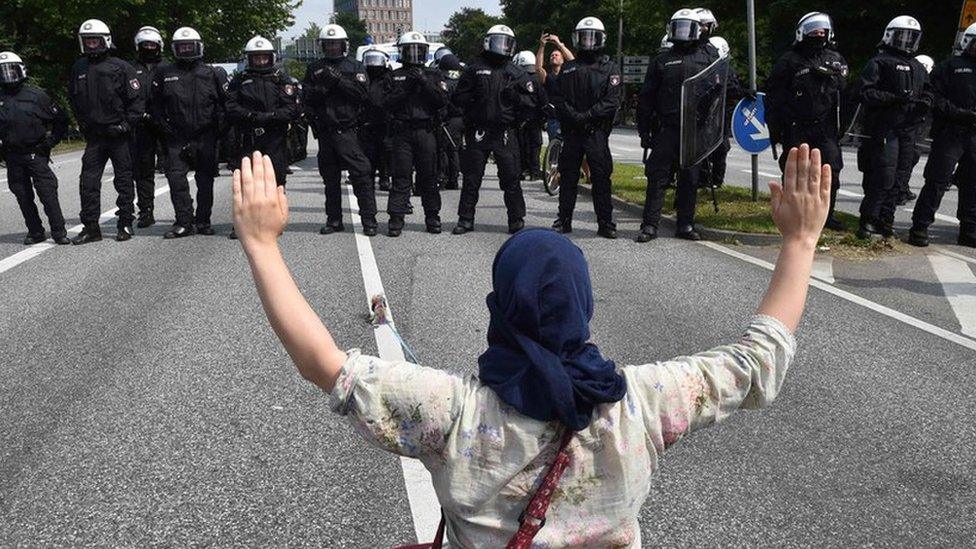G20 clashes prompt German call for database of leftist militants
- Published
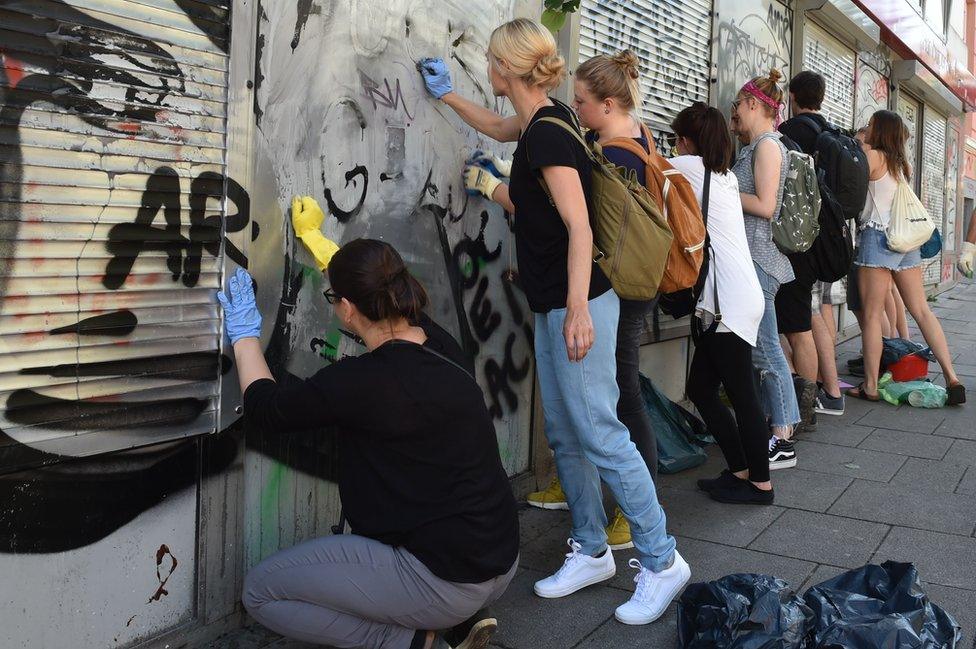
Thousands of the city's residents are cleaning up the mess - graffiti, vandalised shops and litter
German politicians want Europe to set up a database to keep track of leftist militants, following clashes that left nearly 500 police officers injured during the G20 summit in Hamburg.
There is a heated debate now about the police tactics, as some 6,000 Hamburg residents clean up after the riots.
Some in Chancellor Angela Merkel's Christian Democrat (CDU) party say Hamburg Mayor Olaf Scholz should quit.
Left-wing extremists of the so-called Black Bloc are under intense scrutiny.
Where did the police go wrong, if at all?
Germany has had previous experience in tackling the violent protesters who try to disrupt international summits.
The Hamburg authorities deployed about 20,000 police to keep protesters away from the G20 venue.
Mr Scholz and his Social Democrat (SPD) allies argue that the police did their main job effectively - protecting the G20.
But a minority of anti-G20 protesters - more or less affiliated to the Black Bloc - engaged in running battles with police in the streets.
Police and anti-summit protesters clashed for a second day
Violence was predictable after the leftist militants invited in sympathisers from across Europe with the slogan "Welcome to Hell".
The flashpoint was an authorised demonstration by about 12,000 people on Thursday evening. Violence erupted when police tried to isolate Black Bloc militants who refused to remove their masks, defying the law.
Police had earlier banned an overnight protest camp in the city - yet the right to peaceful assembly is enshrined in German law.
Cornered by police, the violent minority, numbering about 1,000 and clad in black, hurled bottles and chunks of paving stone. Some protesters scaled a wall and rained fireworks down on the police.
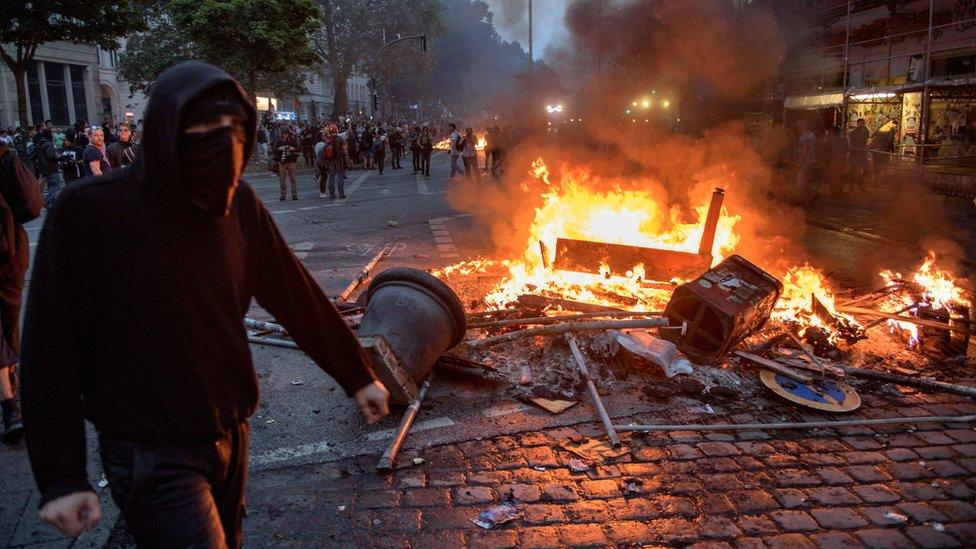
Hamburg suffered much vandalism during the riots
Officers in full riot gear retaliated with baton charges, tear gas and water cannon. An anti-terrorist unit was called in to help disperse the Black Bloc. There were 186 arrests.
The worst of the violence gripped the central Schanzen district. It is an area famous for its left-wing "alternative" scene, including squatters at the Rote Flora cultural centre.
Clashes continued throughout the G20 summit - until Sunday morning. Some shops were vandalised and looted - including a supermarket - and several cars set ablaze.


What action will be taken now?
The most eye-catching proposal is to launch a European database to monitor violent leftists and prevent them crossing borders when summits such as the G20 are getting under way.
A senior CDU politician, Thomas Strobl, called for a database to identify "marauding, travelling, violent left-wing extremists". But he admitted that police could only arrest "those who we know are up to no good".
Green Party leader Simone Peter warned against a "populist, knee-jerk" reaction. She pointed to the EU's existing intelligence database - the Schengen Information System (SIS), external - and said police forces ought to use it more efficiently.
Some of Mrs Merkel's conservative allies accuse the SPD, Greens and left-wing Die Linke of turning a blind eye to far-left extremists.
But Die Linke has called for a parliamentary inquiry into the G20 violence.
For a long time the authorities' focus has been on Islamist violence and neo-Nazi extremists. Intelligence on those extremists is shared via an EU database, but sometimes police co-operation is patchy.
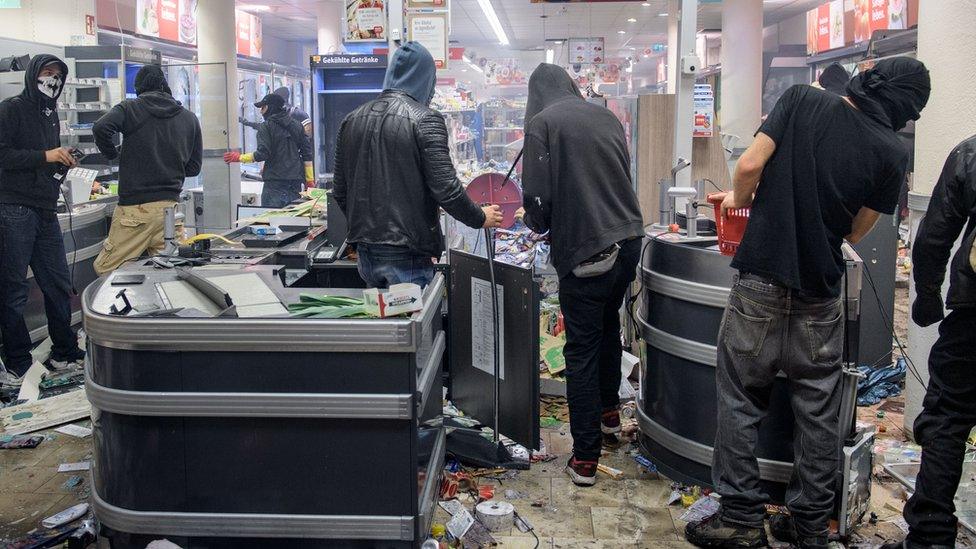
Black Bloc extremists vandalised and looted a supermarket
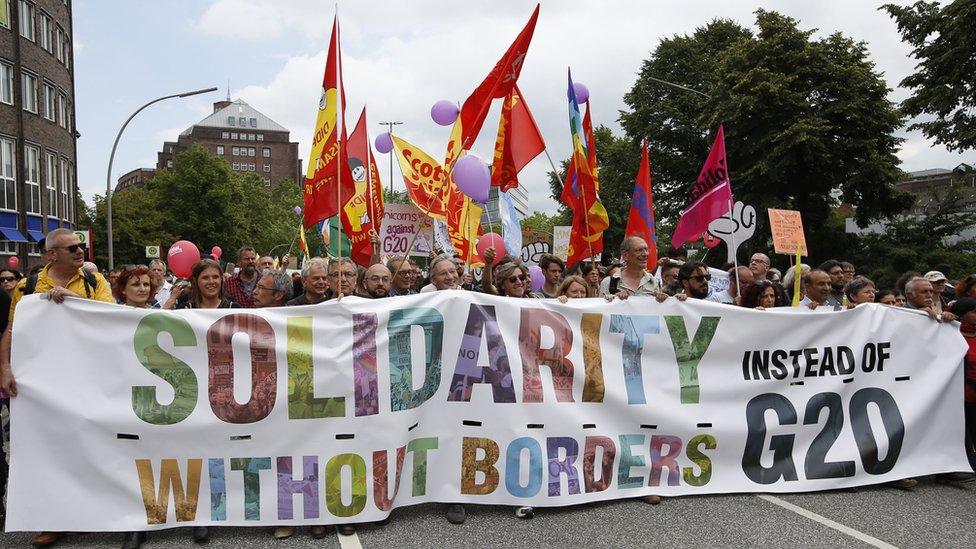
Peaceful demonstrators far outnumbered violent ones in Hamburg - but they were not in the media spotlight
Mrs Merkel's chief of staff, Peter Altmaier, has defended the Hamburg mayor, saying police tactics were agreed between the city and the federal government.
The government has offered compensation to businesses that were vandalised - a process that could take many weeks.
The police are struggling to identify instigators of the violence. They have asked the public to hand in video or photos taken on mobile phones that could help the investigation.
Masked protesters dressed from head to toe in black were almost impossible to identify. Some avoided arrest by changing quickly, as they wore everyday clothes underneath, German n-tv news reported.
Was it a mistake to hold the G20 in Hamburg?
Germany's second-biggest city is licking its wounds and the scale of the violence has triggered much soul-searching.
Mrs Merkel defended the choice of Hamburg for the G20, pointing to previous summits held in London and other major cities.
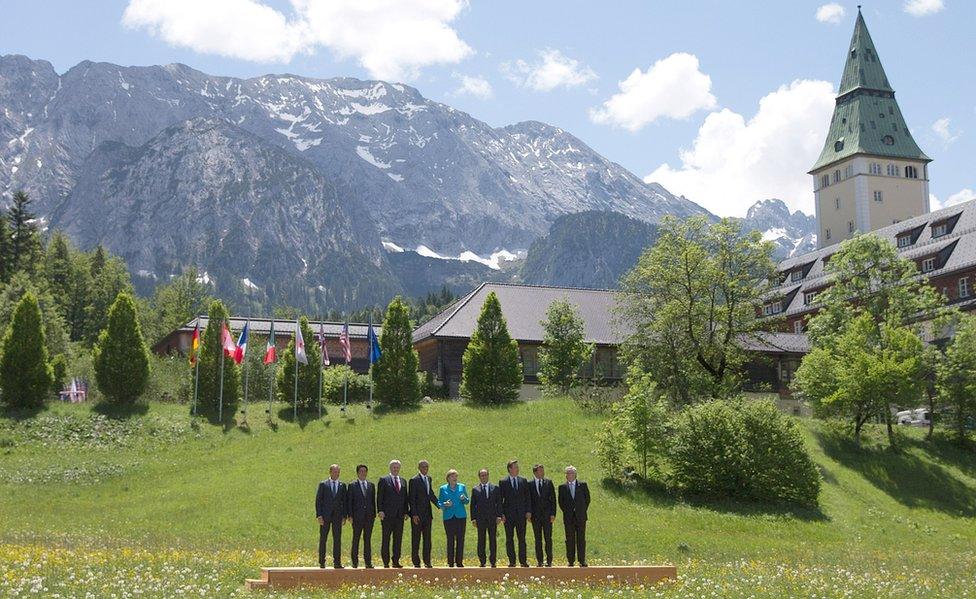
In 2015 a G7 summit was held at Schloss Elmau, Bavaria - picturesque but remote from ordinary people
There is a powerful argument against removing such summits to isolated venues that are easier to protect. Doing so risks fuelling hostility towards a perceived global elite, widely accused of encouraging predatory capitalism and deepening poverty.
Interior Minister Thomas de Maiziere said Germany would continue hosting summits in cities, despite the shock over Hamburg.
There is some frustration that the clashes overshadowed the important messages that peaceful demonstrators wanted the world to hear.
Some commentators say society as a whole has a responsibility to stand up for democracy and prevent a violent minority foisting their agenda on others.
- Published7 July 2017
